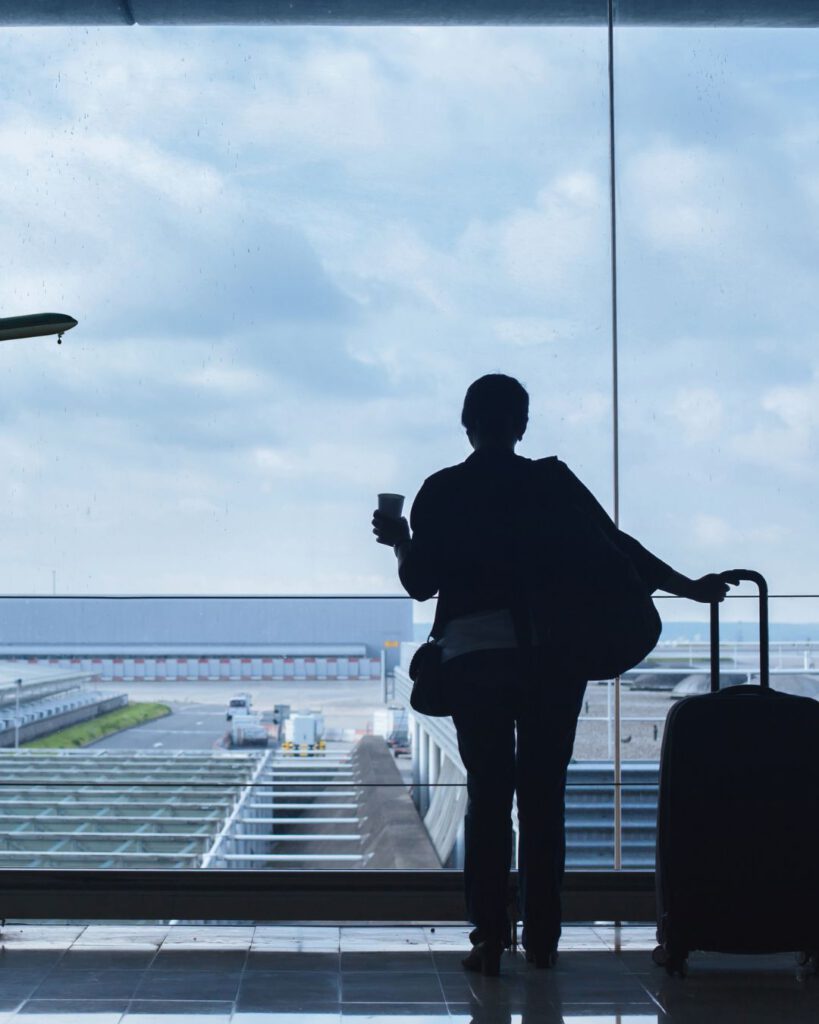A crazy tipping culture, high medical bills and a few extras might increase the cost of a trip to the US. Let me explain you and take you through.
A trip to the US is something everybody should experience at least once – it’s a bucket-list destination that mixes wild nature, skyscrapers, and culture in a way no other country does. From watching the sunrise in Yosemite to walking down Broadway at night, the experiences feel endless.
But for travelers coming from across the pond, there’s one thing that can take away some of that excitement: the hidden costs. The US is not cheap, and sometimes even simple things—like a cup of coffee or a cab ride—can end up being twice what you’d expect.
After traveling across the States several times, and learning a few lessons the hard way (including a fainting incident that left me with a $4,500 hospital bill), I’ve realized that the best way to enjoy America is to know what you’re walking into.
Here are the four expenses you should definitely budget for.
1. Tipping
While tipping is technically voluntary, it’s one of those “voluntary” things that isn’t really voluntary at all. In the US, tipping is part of the culture. It’s not like in Europe, where you leave a few coins if the service was great. In America, not tipping can get you side-eyed—or worse.
I’ve even seen videos of waiters complaining online about customers who didn’t tip enough. It’s such a deeply rooted part of the service economy that it feels almost like a second tax.
You’re expected to tip in:
- Restaurants and bars
- Delivery and taxi drivers
- Valet parking and hotel staff (housekeeping, doormen, porters)
- Hairstylists, masseuses, and wellness professionals
- Tour guides
The standard rate is around 15–20%, but in major cities like New York or San Francisco, 20% is basically the norm. Some locals even go up to 25% for excellent service.
Tip: Always carry some small bills. It’s often easier than figuring out how to tip digitally, especially when you’re jetlagged and trying to order your first coffee.
And for perspective: in Japan or South Korea, tipping can actually be seen as insulting, as if you’re suggesting someone needs charity. In Italy, instead of tipping, you’ll often pay a small “coperto” — a cover charge for sitting at a table. It’s funny how something as simple as gratitude can mean so many different things around the world.

2. Insurance
Travel insurance isn’t mandatory for visiting the US — but it really, really should be. The American healthcare system is one of the most expensive in the world, and skipping insurance is just asking for trouble.
I learned this the hard way. A few years ago in Boston, I fainted on the street. My ex-girlfriend panicked and didn’t want to call an ambulance because she wasn’t sure if my travel insurance covered it. We ended up taking a taxi straight to the emergency room. I spent about three hours there, most of it waiting, and only one hour actually being checked.
A few weeks later, a bill for $4,500 showed up at my home in Germany. Luckily, my German travel insurance covered every cent. But it was a wake-up call: in the US, even a minor incident can cost you more than your entire trip.
When choosing insurance, look for:
- Medical coverage (check if the USA is included—some cheap policies exclude it!)
- Emergency evacuation
- Trip cancellation or delay
- Lost or stolen luggage
- Tech coverage (laptop, phone, camera)
And always read the fine print about deductibles. A low premium might mean high out-of-pocket costs when something goes wrong.
It might feel like a boring expense before your trip, but believe me — it’s the difference between a great travel story and a financial disaster.

3. Transport and Accommodation Extras
Transportation in the US can be deceivingly expensive. Renting a car seems simple enough, but then come the tolls, parking fees, fuel, and insurance add-ons. Even getting from the airport can double your budget if you haven’t planned transfers.
And don’t forget about checked baggage fees—many airlines, especially domestic ones, charge extra even for the first bag.
Accommodation costs can also hide surprises. In major tourist cities like Las Vegas, Orlando, or New York, hotels often charge “resort fees” or “amenity fees” — daily surcharges that cover things like pool access or gym use, even if you never use them. Internet access can also be an unexpected add-on; I once paid $20 per night at a Hilton for Wi-Fi.
My tip? Skip overpriced hotel Wi-Fi and buy an eSIM card instead.
Also remember: when you check into hotels or rent cars, companies often hold a deposit on your card. This can temporarily freeze hundreds of euros from your balance. If you’re on a tight budget or using a debit card, this can easily mess up your plans.

4. Emergency Expenses
Even the best-planned trip can surprise you. A missed flight, a lost wallet, a broken camera — it happens. Having an emergency fund is crucial.
I don’t recommend carrying large amounts of cash, but I do keep an emergency card in a separate place from my main wallet, and an emergency fund in a savings account back home that a friend can transfer to me if needed.
When I was in Colombia, a broken tooth once fell out while eating dinner — and in Croatia, I cut myself on a rock while climbing. Small incidents, but both times, my insurance stepped in and covered the costs.
The moral of the story? Emergencies don’t wait for the right moment. Prepare for them.

Adjust Your Budget, Not Your Experience
Once you’ve built a realistic budget, it’s all about adjusting your expectations — not lowering them. You can absolutely explore the US on a budget and without breaking the bank.
Book flights during shoulder seasons, look for hotel deals on Booking or Airbnbs, and take advantage of free activities: hiking in national parks, exploring street art, or simply getting lost in small towns.
The key is to understand where your money goes, so you can spend it on experiences that matter.
Because at the end of the day, the best memories from the US won’t be the tips, the taxes, or the bills — they’ll be the road trips, the people you meet, and the stories you bring back home.
